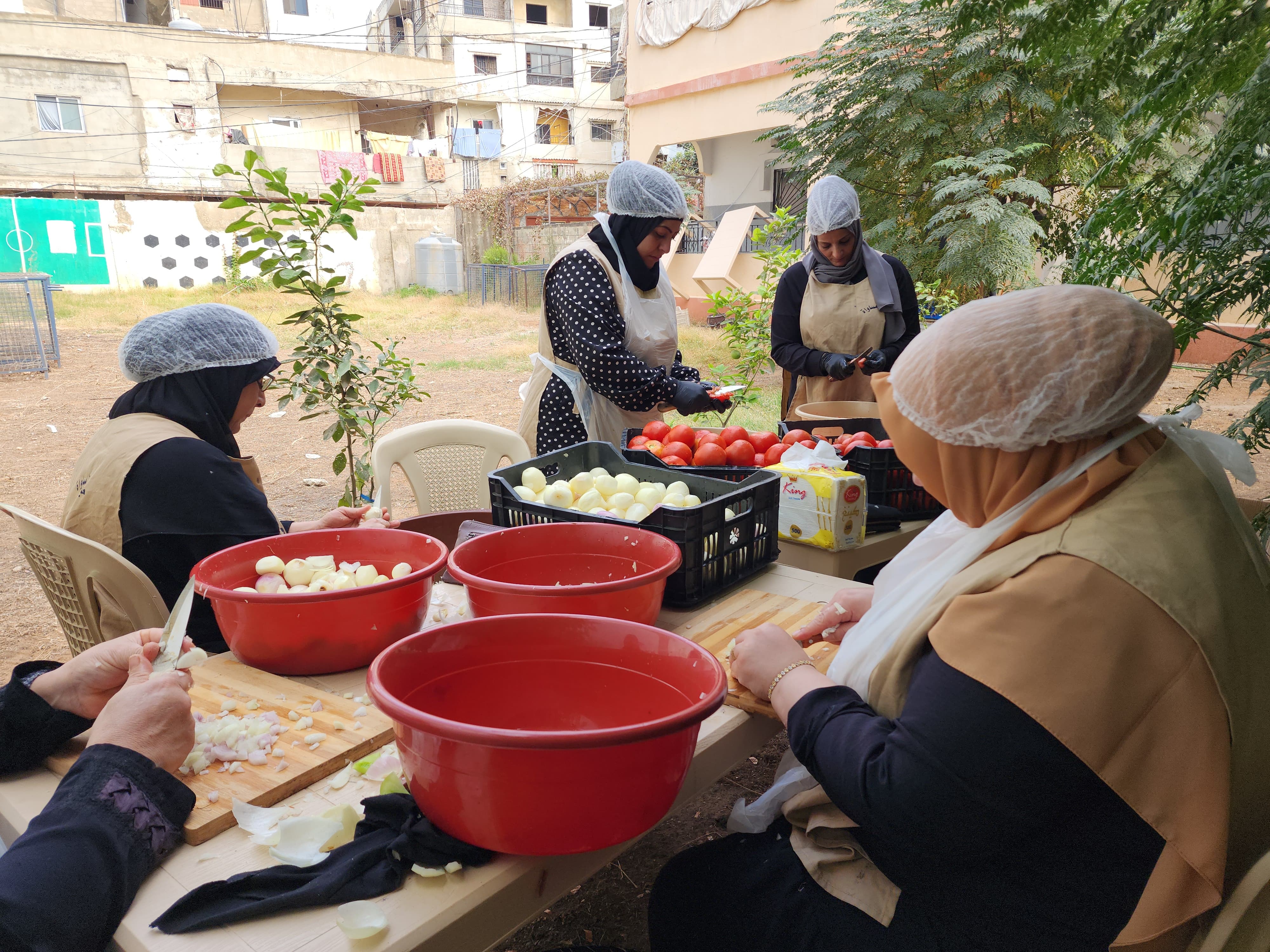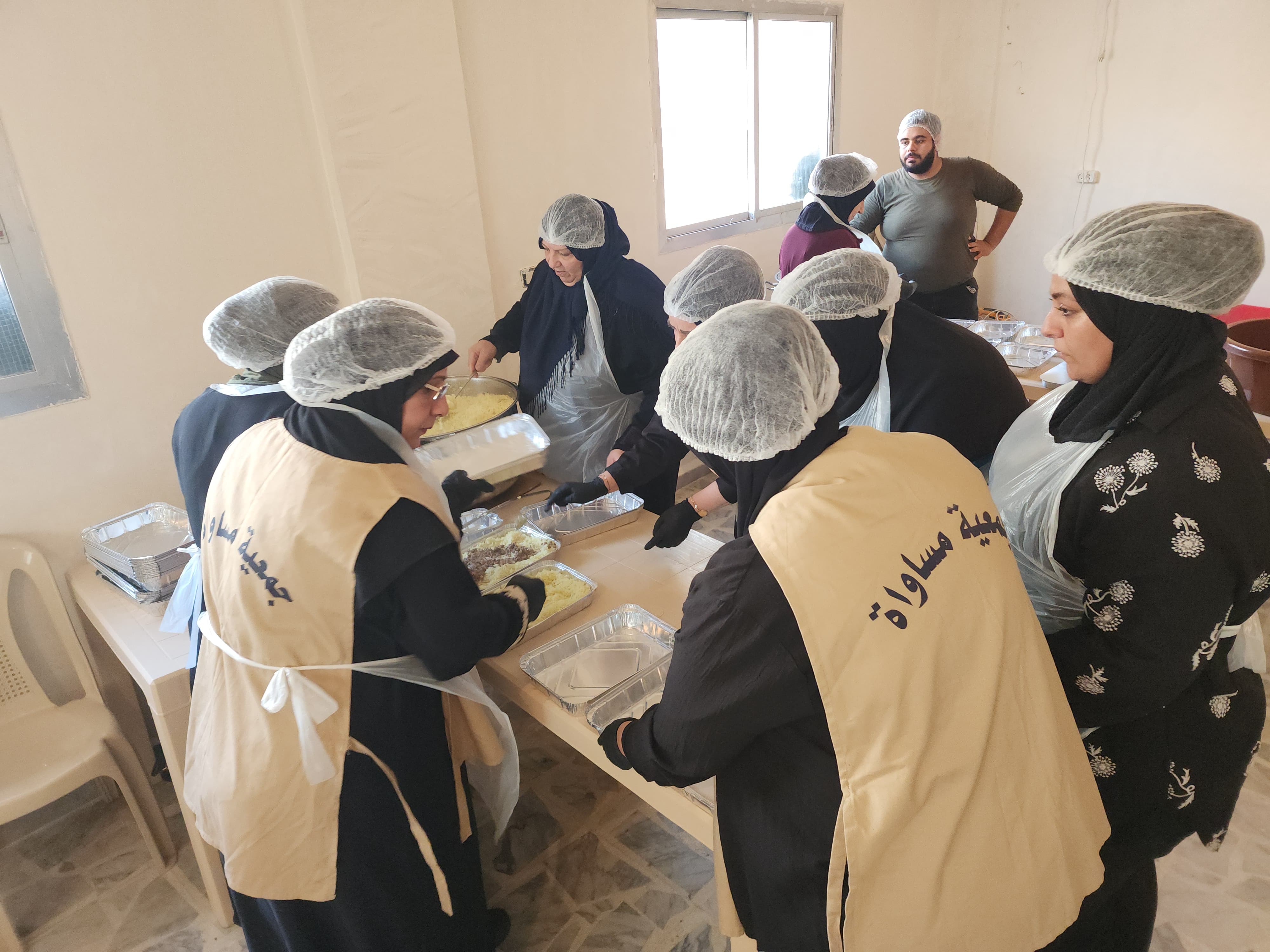Displacement shifts further north as the conflict in South Lebanon intensifies
Date:
As the conflict in South Lebanon continues to escalate, Israeli air strikes on the capital, South and other parts of the country are displacing increasing numbers of people and shifting migratory flows from cities and shelters in the country’s south, towards the more ill-prepared north.
Data are scant and changing daily, but according to the International Organization for Migration and United Nations High Commission for Refugees’ Displacement Tracking Matrix, at least 779,613 people were displaced within Lebanon as of 17 October 2024 (52 per cent female; 48 per cent male) spanning all 26 districts across the country.

“The displacement influx to the north was unexpected and overwhelming,” explains Mohammad Younis, Executive Director of Mousawat. “We witnessed many heartbreaking scenes, with people forced to sleep on the streets during the first few days until schools began opening, though they were still unprepared and lacked essential supplies. While we and other organizations are providing support, it’s far from enough. The situation is tragic and the first time in Lebanon’s modern history that Tripoli and the North Governorate are hosting such a large number of internally displaced persons (IDPs).”
Mousawat, a local UN Women partner under the Women’s Peace and Humanitarian Fund, is supporting internally displaced women in different shelters in Tripoli, North Lebanon.
At just 17, Fatima should be attending school in Zrarieh, South Lebanon. But she’s now living in an abandoned school compound serving as a shelter for the displaced in Beddawi, North Lebanon.
“At first, there was shelling near our home… We left with relatives, unsure of where to go,” she says. “The municipality couldn’t find housing for us, so we ended up in shelters. Initially, we planned to move to the southern suburbs, but when we arrived, the area was bombed again, forcing us to flee to Tripoli.”
Fatima adds: “The conditions are tough, and it’s hard to adjust in the shelter. The bathroom situation is especially challenging. They provide us with sanitary pads, but we have to purchase everything else ourselves. I’d prefer to return to my home, even though half of my village is destroyed.”
At the same compound, a 51-year-old woman displaced from Al-Maskan Al-Shaabi shudders at the memories of what brought her here from Tyre.
“Bombing, terror, fear and moving from one place to another – we went through it all. Our car was burned, but people helped us reach the school in Tripoli. In the Jbeil area, there was no space, and people were sleeping on the ground. We felt like we were experiencing death while still alive, and there was no aid. That’s why I came here, joining some of my family members who had already fled to the north. … What I experienced in Tyre, no woman should have to endure.”
At the same school shelter in Beddawi, 24-year-old Hala Khachab sheds tears as she recalls her evacuation from Chiyah to Tripoli.
“They bombed the southern suburbs near where we lived, so we moved to a place in the south, where I stayed for two days before joining my husband’s family, who fled here. … Our mental health is destroyed. I cry all the time, even now as I’m speaking to you.”
While thankful that she has found a safe space – for now – Hala says the situation is challenging.
“The conditions we are going through are incredibly difficult, despite the people here taking care of us and trying to provide the basics. Of course, there are shortages. We sometimes have to buy food, and more importantly, women’s hygiene products. The sanitary pads provided are either of poor quality or insufficient in quantity.”

For 33-year-old Zeinab, the repeated bombing has already forced her family to flee three locations.
“One day, they bombed our neighbourhood. I grabbed my children, and we went to my in-laws’ house in another area, thinking it was safer. But that area was also hit, so we had to flee to Saida. … We stayed on the road for hours before reaching Beirut, hoping to rent a place there. During our search, there was a strike in Ghobeiry. We realized that Beirut wasn’t safe either, so we decided to go to Tripoli.”
She’s been staying at the makeshift shelter opened at the Deir Ammar Technical School there for a week now.
“Although the people here treat us well, you don’t feel comfortable like you would at home. I had to bathe my daughter in cold water. I struggle with maintaining personal hygiene. You can’t shower whenever you need to. There are no pillows to sleep on, so we sleep on our clothes,” says Zeinab. “The only good thing is that my husband, my four children and I have a room to ourselves, with no one else.”
She’s one of the lucky few, however, as other families live in cramped conditions. Aida Hussein Wahid, a 41-year-old Palestinian woman displaced with her five daughters from Al-Burghliyyeh, Tyre to the Deir Ammar Technical School in Tripoli, shares a room with three other families.
“It’s uncomfortable because there’s no privacy. There are young women who wear hijabs, and we are sharing the room with men,” says Aida. “It’s not a comfortable situation. I struggle when I want to shower, comb my hair, use the bathroom, or change my clothes. We need solutions to return to our homes, but until that happens, we need mattresses, things to sit on, heating and clothes for the children. Everyone is trying to help us as much as they can. … The situation isn’t great, but it’s better than being without shelter.”